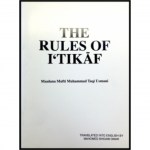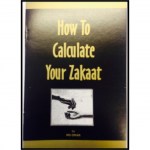1.Is there a difference in substance between a Takaful non - profit , gratuitous arrangement , based on cross - subsidization, and a conventional insurance contract for gain, in the nature of a wager?
2. The answer depends on an anterior question :
Does the Shariah prohibition of gharar ( manifest uncertainty of outcome, based on future uncertain events , which may or may not occur ) influence a purely gratuitous contract , such as a donation? The answer is no, and may be best explained by the following example, in the context of futures:
A donates to B , the future fruits of his trees , which will harvest next spring. This donation is subject to a future , contingent , uncertain event ( gharar) which may or may not occur. If the fruits do not harvest on the future date, the donee / recipient suffers no loss, arising from the donation. On the other hand, If A sold the fruits to B , to harvest on a future date, at an agreed price, and the fruits do not harvest or mature, the buyer suffers a clear out of pocket loss, arising from the sale: he has paid the price, but receives nothing in return, in the context of a reciprocal contract of gain.
3. This conceptual distinction on the impact of gharar, upon different classes of contracts, was brilliantly highlighted by the great Maliki jurist , Shihaab al- Din al - Qaraafi, in his well known work, Al Furuq ( Differences) : see the 24 th distinction.
4. A medical scheme , registered under the Medical Schemes Act, 1998 , is also, in substance , a gratuitous, non - profit making arrangement, which works on the principle of cross - subsidization and mutual assistance, analogous to a Takaful arrangement, with the realized surpluses, accruing for the benefit of its members, including upon a winding-up.
And Allah Knows Best.
◦ M S Omar
◦ 22 March 2021
مثاله:
بيع ما تثمره الشجرة فى العام القادم، هذا عقد غرر لأننا لا ندرى هل ستثمر هذه الشجرة فى العام القادم او لا تثمر ، و اذا أثمرت هل ستثمر كثيرا او قليلا، ففى عقد المعاوضة المشترى دفع مبلغا ، اذا لم تثمر الشجرة فيضيع عليه هذا المبلغ ، و كذالك اذا أثمرت اقل مما كان يتوقع ، و قد تثمر اكثر مما كان يتوقع الباءع فيأخذ المشترى اكثر مما دفعه، و بالمقابل :
و هبة ما تثمره الشجرة فى العام القادم فيه نفس هذا الغرر و هو عقد تبرع ، فالغرر موجود فى عقود التبرعات كما هو موجود فى عقود المعاوضات ، و لكن فى عقود التبرعات لا يؤثر ، لان هذا الشخص الذى وهبت له ثمرة هذه الشجرة فى العام القادم لم يدفع شيءا، فإذا أثمرت يستفيد و اذا لم تثمر لا ضرر عليه ، و هذه وجهة نظر المالكية فى التفرقة بين تأثير الغرر فى عقود المعاوضات و فى عقود التبرعات.
و بناء على هذه القاعدة ، ان التجارة فى التأمين التقليدى، هناك جهة التى تغنم و قد تغرم، مثاله: اذا أنا دفعت الف قسطا عن سيارتى لشركة تجارية ، و فى هذا العقد غرر ، لان السيارة قد لا يصيبها شىء فالشركة تأخذ كل المبلغ ، و أنا لا أخذ شيءا،
و بالمقابل:
اما فى التأمين التعاونى ، فالمؤمن و المؤمن له واحد، و ليست هناك جهة تتاجر فى التأمين ، هم المشتركون ، الذين يستفيدون من ارباحها اذا فاضت عن التعويضات و تعود اليهم هذا الفاءض ، و هم الذين يغرمون اذا زادت التعويضات عن الاشتراكات ، هم متبرعون ، و الذين يديرون الشركة لا يملكون الشركة، هم موظفون يتقاضون مرتبات، هذا هو الأساس فى التأمين التعاونى.
والله تعالى اعلم
M S Omar 22 March 2021
13 September 2016
Dear Sir
RE: GUIDANCE NOTE ON SHARIAH COMPLIANCE OF AGILITY PRODUCT OFFERED BY MERCEDES - BENZ FINANCE COMPANY
1. In terms of the relevant agreement, governing the Agility product, the finance company, as lessor, effectively leases the use of the vehicle, chosen by the customer, for a specified agreed period, at an agreed monthly or periodic rental, linked to the benchmark interest rate, either fixed or variable, as determined by the lessor.
2. Ownership of the vehicle in terms of clause 19.5 at all material times remains vested in the lessor. Upon expiry of the agreement, the lessor guarantees that the leased vehicle will have the “guaranteed future value”, so disclosed at the inception of the agreement, on the schedule thereto, provided that the lessee has complied with all its obligations under the agreement. (see clause 36).
3. There are several terms of the agreement, governing the Agility product, which are contrary to the basic principles of a lease, as recognized in the Shariah. It is not necessary to canvass all Shariah issues in this short note, nor do time constraints permit.
4. However, the important, critical clause in the agreement that goes to the heart of the analysis is the provision governing risk, namely clause 27 which provides as follows :
“all risk in the vehicle will pass to you from the date on which you sign the Schedule (page1) or the date on which you obtain possession of the vehicle, whichever comes first”.
5. It is established Shariah law, across all the mazaaib, that the holding of the lessee is that of trust, and that the risk of damage or destruction of the leased asset at all relevant times , during the lease , remains vested in the lessor. In other words, the lessee is not liable to the lessor for any damage to the vehicle , unless such damage or loss is caused by the negligence of the lessee, or , material breach of contract, or, other misconduct on the part of the lessee.
العين المؤجرة تكون على ضمان الموءجر طيلة
مدة الاجارة ما لم يقع من المستأجر تعد او تقصير .
AAOIFI Shariah Standard 9
6. The effect of contractually transferring all the risk in the leased thing, from lessor to lessee, has serious Shariah consequences, and at best renders the transaction invalid (faasid), with the result that normally the market rental applies, in the Hanafi school.
7. For example, a plain reading of clauses 23.1.4 and 23.1.5 of the agreement, transfers the obligation to maintain the vehicle, including major maintenance associated with ownership, from the lessor to the lessee. This is impermissible. All the schools of law are unanimous that major maintenance upon which the intrinsic utility and operation of the leased asset depends, is the obligation of the lessor, as owner. (as opposed to ordinary minor operational maintenance, such as service, which can be passed on to the lessee).
لا يجوز ان يشترط الموءجر على المستأجر الصيانة الاساسية للعين التي يتوقف عليها بقاء المنفعة.
AAOIFI Shariah Standard 9
8. Clause 29 provides that in the event of damage to the vehicle, the lessee has the absolute obligation and is strictly liable, under all circumstances, at his or her cost, to “repair and restore the vehicle to its former condition”. Similar provisions apply to the situation, where the vehicle is stolen or otherwise damaged beyond economic repair. This is an impermissible transfer of Shariah risk or damaan to the lessee.
9. Similarly, clause 8.3.2 of the agreement provides that, in the event of a failure by the lessee to pay any amount due and payable in terms of the agreement, the lessor shall be entitled to claim “the immediate payment of the full outstanding balance in terms of this agreement, irrespective whether or not such amount are due at that time or not.” This is clearly impermissible.
في حالة التنفيذ...... يحق الموءجر ان يستوفي منها ما يتعلق بالأجرة المستحقة للفترات السابقة فقط، و ليس له استيفاء جميع الاقساط الإيجارية بما في ذالك الاقساط التي لم يحل اجلها و لم يقابلها استخدام للمنفعة.
AAOIFI Shariah Standard
And Allah Knows Best
M S OMAR
Specialist Corporate and Shariah Attorney
For Online Literature
www. msolaw.co.za

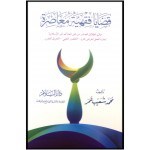

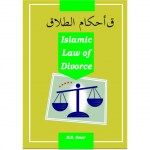
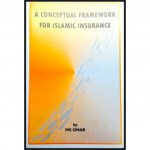
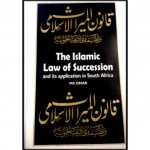
 SUPPORT
SUPPORT